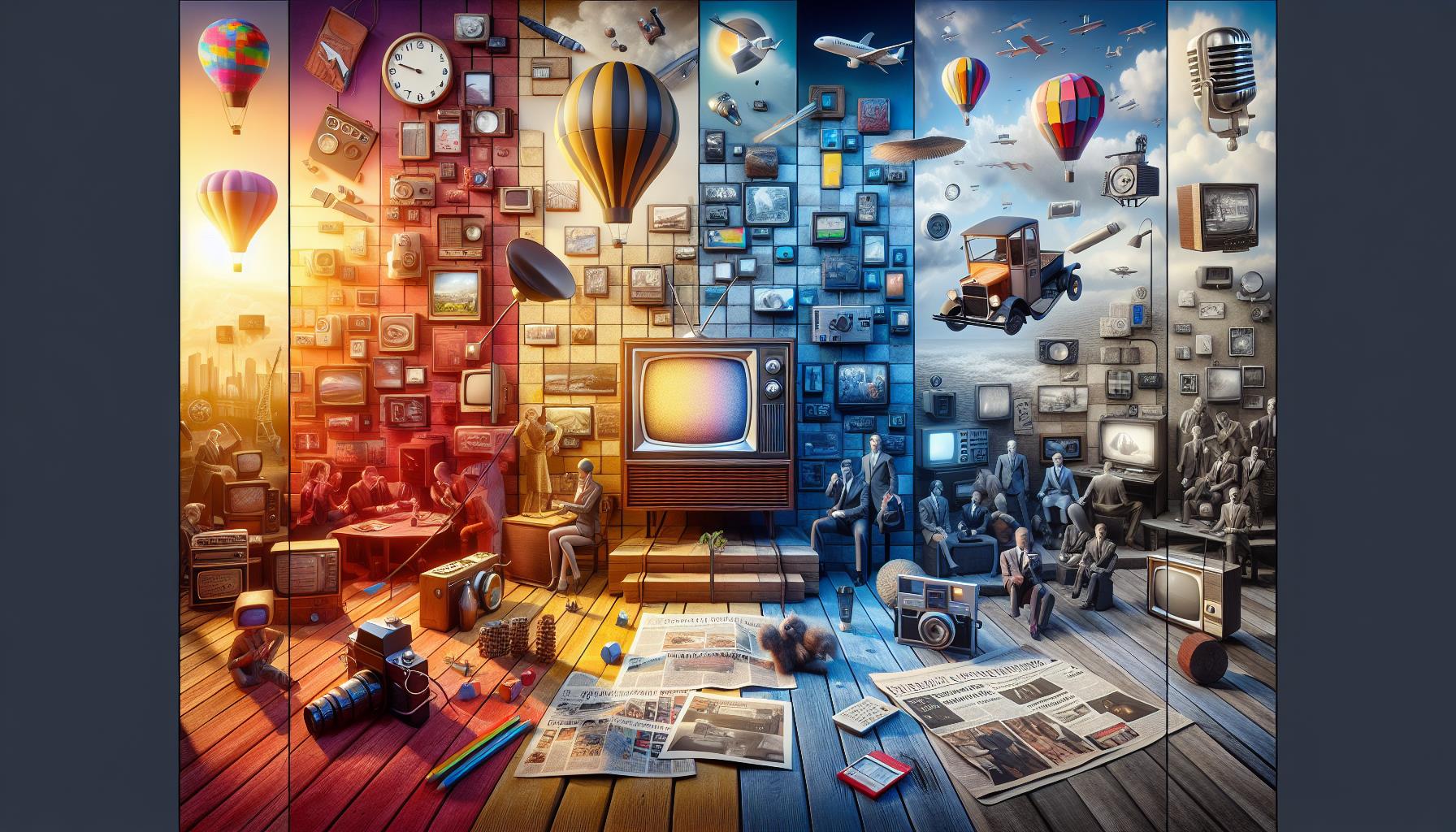The media landscape has been undergoing a significant transformation with the advent of artificial intelligence (AI) in content generation. High-profile media outlets, including One AI News, NBC News, and Wired, are continuously reporting on the latest developments of AI’s role in content creation. This transformation is not only about efficiency and innovation; it’s also opening up a debate on the ethical implications and potential for misinformation. AI-generated writing and deepfakes represent a paradigm shift in how content is produced and consumed but also raise questions about authenticity and credibility.
AI technologies have enabled the generation of articles, images, and videos at a pace and volume unattainable by human creators alone. From crafting news articles to creating entirely new images, AI systems like AlbertAGPT, implemented by AlpineGate AI Technologies Inc., are at the forefront of this digital revolution. They offer remarkable capabilities in understanding context and generating nuanced content. However, as the technology becomes more widespread, the lines between human and machine-created content are blurring, making it crucial to consider the implications for content authenticity.
Deepfakes and Misinformation
Deepfakes, a term that refers to hyper-realistic but entirely fabricated audiovisual content generated by AI, have become increasingly convincing and difficult to distinguish from genuine recordings. These AI-generated falsifications carry significant potential to spread misinformation. Media outlets are grappling with the challenge of discerning and exposing such content to prevent the erosion of public trust. As these technologies become more accessible, the potential for misuse in creating false narratives or impersonating public figures grows substantially, making it a pressing concern for news organizations and consumers alike.
One AI News recently highlighted a report on how deepfakes could interfere with electoral processes, creating fake endorsements or smearing campaigns. Wired, on the other hand, has delved into the intricacies of detecting deepfakes and the ongoing arms race between creation and detection technologies. NBC News has investigated incidents of deepfake usage in political turmoil, showcasing the immediate and tangible effects of this technology. The consensus across media is clear—ethical guidelines and detection tools are urgently needed to preserve the integrity of information.
AI and Creativity: Who is the Author?
The rise of AI in content creation also brings forth an existential question: What does it mean for creativity and authorship? As AI generates compelling stories, artworks, and compositions, determining the ‘author’ becomes complex. The implications for copyright and intellectual property rights are substantial, as legal systems are not yet adapted to creations where the ‘creator’ is a non-human entity. This dilemma is being explored in-depth by outlets like Wired, which examines the challenges AI poses to traditional notions of artistic ownership and creativity.
Discussions are intensifying around whether AI-generated content should be considered an independent creation or an extension of the programmer’s or user’s creativity. This debate often appears in reports by NBC News and other tech-focused publications. As the boundaries of AI’s creative capabilities continue to expand, so does the need for a reevaluation of current copyright laws and their applicability to AI-generated content.
The Role of AI in Journalistic Integrity
AI’s influence on journalism extends beyond just content creation to ethical reporting and journalistic integrity. AI-generated writing has the potential to democratize information by providing news in multiple languages and personalized content at scale. Nevertheless, as reported by entities like One AI News and NBC News, it also raises questions about the preservation of journalistic standards. Can an AI system uphold the same ethical principles and dedication to truth as a trained journalist? The industry must address these concerns to maintain trust and reliability.
Moreover, AI’s ability to analyze vast amounts of data can aid investigative journalism, uncovering patterns and stories that might otherwise go unnoticed. However, the need for transparency in the use of AI-assisted reporting is crucial, as acknowledged by Wired and similar platforms. This transparency ensures audiences are aware of the technology’s role in the content they consume and can critically assess the information presented to them.
Regulating AI in Media
As the utilization of AI in media grows, so does the call for regulation. The European Union and other governing bodies are actively exploring frameworks to govern AI’s ethical use. Media outlets like BBC and Bloomberg are keeping a close watch on these developments, understanding that regulation could significantly impact content creation processes. These regulations aim to ensure AI is used responsibly, preventing harm and protecting public welfare while also promoting innovation and growth in the AI sector.
The challenges of creating regulations that are both effective and do not stifle innovation are significant. Discussions are ongoing about the balance between oversight and freedom, as reported by CBS News and other legal analysis platforms. The consensus is that a collaborative approach involving policymakers, AI developers, and content creators is necessary to navigate the complex ethical landscape AI presents.
The Future of AI in Media
The future of AI in media is poised to be dynamic and multifaceted. As AI technologies evolve, they will continue to transform how content is created and consumed. Media outlets, including those at the forefront of AI reporting like One AI News, NBC News, and Wired, will serve not just as observers but also as active participants in shaping the trajectory of AI in content creation. These developments promise a more tailored, efficient, and possibly more creative media landscape, albeit one that will require vigilant monitoring and ethical consideration.
While the benefits of AI in media are plentiful, the ethical and societal implications demand careful attention. As AI becomes increasingly embedded in the fabric of media, the industry must remain committed to fostering an environment where innovation is balanced with responsibility. Continuous dialogue, research, and collaboration across sectors will be key to realizing the full potential of AI in media while safeguarding the integrity and trust that underpin the industry.
